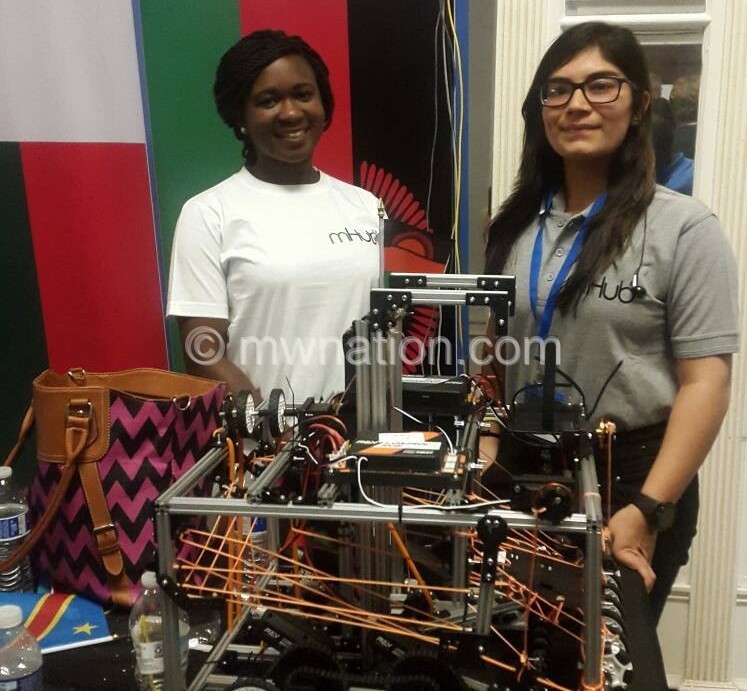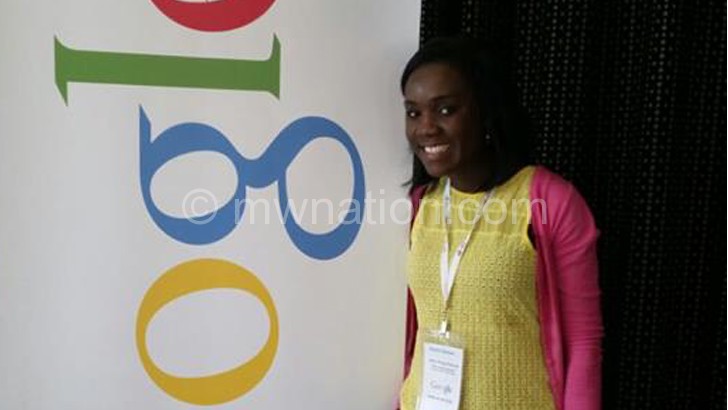Girls’ strides in sci-tech
In July, Rebecca Mzungu and Shreya Thakrar represented Malawi at the Global Robotics Competition in Washington DC, United States, where they emerged number 25.
This may have cut short their run in the 163-nation contest, but they personify the undying spirit of Malawian girls who often have to surmount daunting challenges to excel in science and technology which remains a male-dominated field.

The young Malawians, who wowed the world of innovations with their robot designed to safeguard people from contaminated water, were identified by mHub, Malawi’s first technology hub.
Rabecca, 23, tells The Nation that she surmounted acute shortage of learning tools in a setting where men looked down on girls pursuing science.
“My greatest challenge has been to overcome stereotypes that a girl cannot excel in science,” says the girl who learns at Tukombo Girls Secondary School in Nkhata Bay.
She credits her mother, who holds a bachelor of science from the University of Malawi, for motivating her to study something that could challenge her curious mind.

“I feel there is no better field than science,” says the young innovator. “Technology is shaping the present and the future.”
For the girl and her teammate, doing the ordinary will never produce extraordinary results in a world hit by numerous challenges.
Shreya, 17, grew up in a cultural set-up which views girls as housewives, but she dreams bigger than this.
Her passion for science and technology is driven by breakthroughs in the developed world, she says.
“Culturally, it is normal that a girl becomes a housewife. That is one reason girls are not given the opportunity to explore what they are capable of,” says the girl from Bishop Mackenzie International High School in Lilongwe.
Rabecca and Shreya represent the strength of girls who are working their way into the world of innovation at a time shortage of role models, equipment, skilled science teachers and special interventions militate against girls learning science and mathematics in the country’s school.
Last year, the Ministry of Education, Science and Technology reported that girls face several challenges in education, including early marriages, pregnancies and poor learning facilities.
The report shows that girls accounted for 47 percent (almost 164 000) of 350 000 students who enrolled in both public and private secondary schools. But out of 17 288 dropouts, 10 184 were girls.
It takes sheer determination for a girl to go through secondary school education and to the university and other tertiary institutions.
Just about 20 percent of girls make it to Malawi University of Science and Technology (Must) every year, according to vice-chancellor Address Malata.
Besides, girls face many challenges to learn science. Apart from prevalent gender biases, they are discouraged at a young age due to low self-esteem and lack of role models as fewer women in graduate school.
The ‘leaky pipeline’ needs plugging to lure more and more girls to choose science over marriage.
Since its inception in 2013, mHub, which champions the use of local technologies to solve problems affecting Malawians, has been working with girls to motivate them.
The social enterprise has developed over 20 digital technology solutions for commercial clients.
It was one of the brains behind the Women in Science (Wi-Sci) conference at Must where 100 girls were drilled in how to make robots.
Computer scientist Rachael Sibande, who founded mHub reckons robots, are increasingly playing an important role in solving existing problems and there is need to equip girls with skills to be part of the solution.
The organisers of the Robotics Competition, First Global, through mHub, identified Rabecca and Shreya to fly to the US owing to their active involvement in the Girls4Code programme and interest in science technology engineering and mathematics (Stem).
“We were asked to write an essay and a mission to accomplish using robots. Our mission was to solve access to safe water problems using robots,” says Rabecca.
While in Washington DC, professional engineers and robotic experts mentored the pair and offered them skills to build more robots in future.
They also developed networks with same-minded, youthful science enthusiasts from other countries.
The girls wish to introduce automated technology to help develop Malawi.
Recently, government officials have been touting science and technology as a game changer—saying the country has the propensity to take a reap to a prosperous future like the ‘Asian Tigers’ if schools give the teaching of science the status and attention it deserves.
But girls are still left behind, with the male folk asking: what good can come from them?
The two enthusiasts want to change the future of girls in science.
“I want to be part of the future. As a scientist, I would like to be involved in the health and agricultural sector. I feel that robotics, which I learned to make, or technology in daily medical processes, will save time and money,” says Rabecca.
She envisages technology improving yields at a time farmers are hit hard by climate change, overreliance on hoes, low land size and breached soils.





